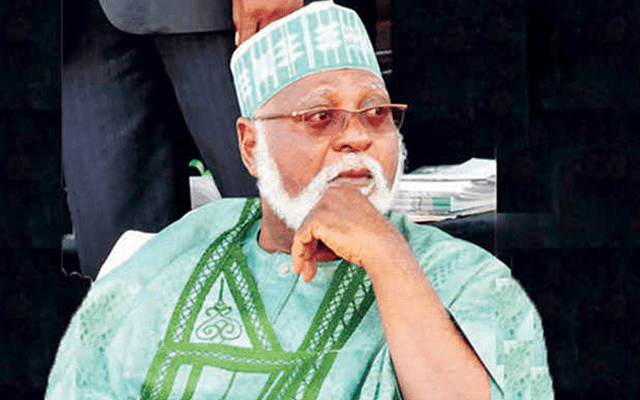The National Peace Committee, headed by former Head of State, Gen. Abdulsalami Abubakar, said on Thursday that the peace agreement signed by political parties and candidates before the 2023 general elections stopped a major outbreak of violence.
The committee stated that it believed the peace agreement achieved its goal because disgruntled parties from the elections chose not to use violence but went to court to express their dissatisfaction.
Revd Fr Atta Barkindo, the Head of the NPC Secretariat and Executive Director of the Kukah Centre, made this statement on Thursday in Abuja during the public presentation of the NPC Preliminary Evaluation Report.
Barkindo, while speaking to reporters, mentioned, “Honestly, people are following the terms of the agreement because when the results were announced, there was no widespread violence. People went to court, which is what the agreement specifies. If you’re unhappy, go to court.
“Some people were unhappy and they did go to court. So, as far as we are concerned, the terms of the agreement have been truly upheld. Other issues of violence are supposed to be handled by legally established agencies. I think they should simply fulfill their responsibilities.”
Barkindo clarified that despite expectations from some parties, the NPC did not have the legal authority to penalize those who violated the peace agreement.
He mentioned that the task of apprehending and prosecuting electoral offenders was the responsibility of the security forces.
He explained, “What people fail to grasp is that the NPC, as a peace committee, does not have the legal power to arrest or prosecute anyone. All the legally established agencies are available to handle these tasks. What we provide is a moral intervention, when the existing institutions fail. So when we sign an agreement and it is breached, we refer the offenders to the appropriate institutions. Even without the NPC's involvement, people can clearly see what is happening. Let the police and other legally established entities, fulfill their duties.
“We are simply adding value and I don’t want people to place too much expectation on the National Peace Committee to go beyond its mandate. But beyond the signing of the peace agreement, when you gather presidential candidates two days before an election and they are all over the media, they can publicly recommit themselves to the process. From my perspective, this adds value to the entire electoral process and that is what we bring to the table because it helps to reduce tension, diminish the level of bitterness, and enables citizens to hold these individuals accountable, especially when they publicly state they will accept the election outcome if it is free, fair, and credible.”
Similarly, Rev Cornelius Fawenu, a member of the National Peace Committee in charge of the Independent State-Based Peace Architecture in Kwara State, commended the efforts of the Abubakar-led committee in striving for peace across the various factions.
Fawenu said, “To enjoy a shared prosperity, we must do our best to share the responsibility of building the nation. I strongly believe that the same spirit has inspired the encouragement of the existence of subnational units of the National Peace Committee, called the Independent State-based Peace architecture across the states of the federation.
“We should praise the wisdom of the founding fathers of NPC under the leadership of General Abdulsalam Abubakar and our knowledgeable convener, Bishop Matthew Hassan Kukah. So the effort is highly commendable and highly appreciated across the states of Nigeria.”



